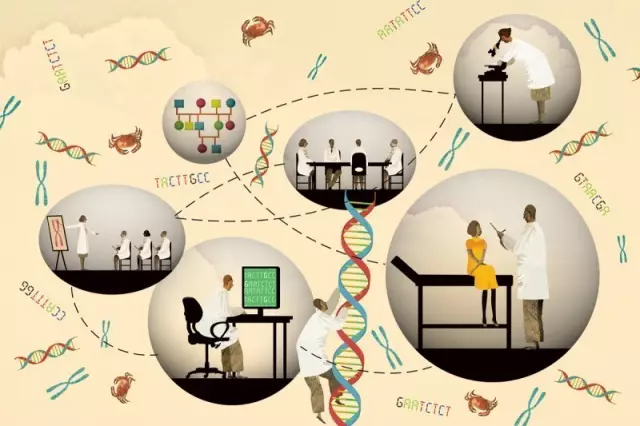Recently, Interleukin Genetics decided to stop selling genetic testing services for the risk of periodontal disease, which may be good news for some experts in the dental field, many experts have long expressed concern about the scientific value of the product. Experts believe that these tests should not enter the market, but based on the influence of the Interleukin leadership in the dental field, these test products still exist for too long. Is genetic testing and periodontal disease risk really useful? In April of this year, the American Dental Association (ADA) published a briefing on oral health education and pointed out that periodontal disease is a complex disease, probably due to a variety of genetic factors and environmental factors. The ADA said they know that genetic testing is being promoted to detect the risk of gum disease. The ADA's Genetic Testing Working Group informed dentists that no gene has so far affected the periodontal disease like smoking or diabetes. Chris Smiley, a Michigan dentist, said: "In the dental field, we will definitely welcome an effective and reliable genetic test to predict the risk of periodontal disease. Unfortunately, these tests are not like this. Chris Smiley evaluated the basic data of Interleukin's periodontal disease genetic testing and expressed high suspicion about its clinical effectiveness and reliability. For many researchers in the field of dentistry, genetics is an area of ​​much debate. For the first time, they offer people a high level of dental care and can provide personalized medical services. But dentists are not the only group tempted by the promises of companies such as Interleukin, and many companies are promoting other testing services. They claim in marketing that some tests can help people lose weight, determine which wine they like best, and even help find their life partner. At present, there are more than 60,000 genetic testing products on the market, and an average of 8 to 10 new testing items are influx every day. It is increasingly difficult for the public to distinguish which ones are scientifically based and which are purely sloppy. The Office of the Inspector General of the United States has noticed this problem and has been tracking fraud in the genetic testing industry and has imposed huge fines on some companies. Insurance companies have also begun to worry about whether they are paying for unnecessary genetic testing and are establishing mechanisms to ensure the reliability of these tests. The US FDA also expressed concerns about public health risks of unproven genetic testing and intends to impose stricter regulations on testing developed by all laboratories. Joshua Sharfstei, deputy director of the Johns Hopkins University Public Health Practice and Training Office, former deputy director of the FDA, said: "Some bad data can mislead patients and doctors, leading to unnecessary procedures or wrong diagnosis." However, in the case of Interleukin, the FDA and the New York Department of Health are investigating the company's gum disease risk test, but it does not limit its usability. The genetic testing products sold by Interleukin still have a large potential market. The US CDC estimates that half of adults aged 30 and over in the United States have periodontal disease. If left untreated, periodontal disease can cause tooth loss, but these inflammatory conditions are also associated with chronic diseases such as diabetes and possible heart disease and increased risk of preoperative delivery. Interleukin declined to be interviewed, but is still publicly stating that his periodontal disease risk test is supported by sufficient evidence. Sd Card Storage Ptz Camera,1080P Driving Recorder,Industry Outdoor Camera,Vision Wireless Camera Shenzhen Zuomi Technology Co., Ltd. , https://www.leftriceptz.com
Benefits and Values: Where to go for genetic testing?